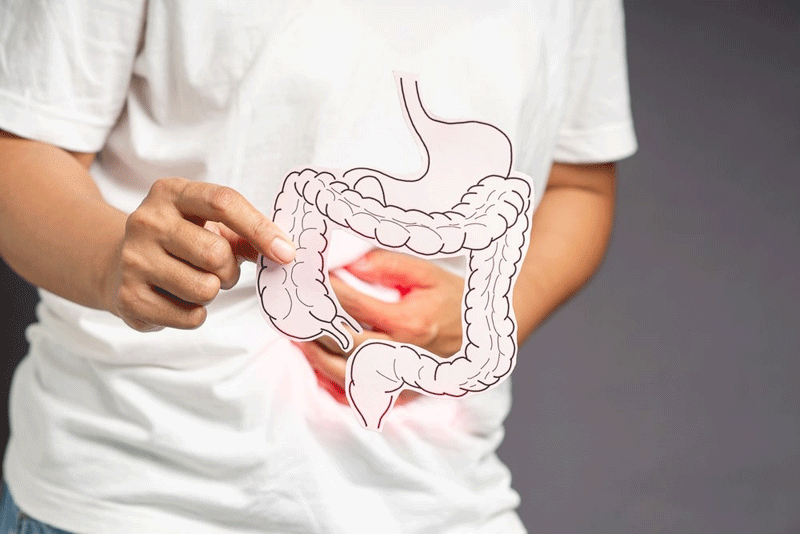In the fascinating world of gut health, probiotics have bagged a heroic role. But are they as beneficial as they seem? Imagine having an army of microscopic defenders in your body that could affect everything from digestion to mood. These nutrient-absorbing, illness-fighting allies might be closer than you think – yes, we are talking about probiotics. They’ve taken center stage in recent wellness trends and look like they’re here to stay. However, amidst all the positive talk about them, one commonly asked question seems to create a wave of curiosity – Do probiotics make you poop? Dive in with us as we unravel the truth behind probiotics and their impact on digestive health.
While probiotics are not laxatives, and their primary purpose is not to stimulate a bowel movement, they have been shown to help with constipation, especially in irritable bowel syndrome (IBS) cases. Probiotics can enhance the frequency and consistency of bowel movements by rebalancing the gut flora and improving mucus production in the intestines. It’s important to note that the effectiveness of probiotics varies between individuals and depends on the specific strain, number of cultures, and individual genetics. As with any supplement or medication, it’s important to consult your doctor before adding probiotics to your healthcare regimen.
Understanding Probiotics and Digestion
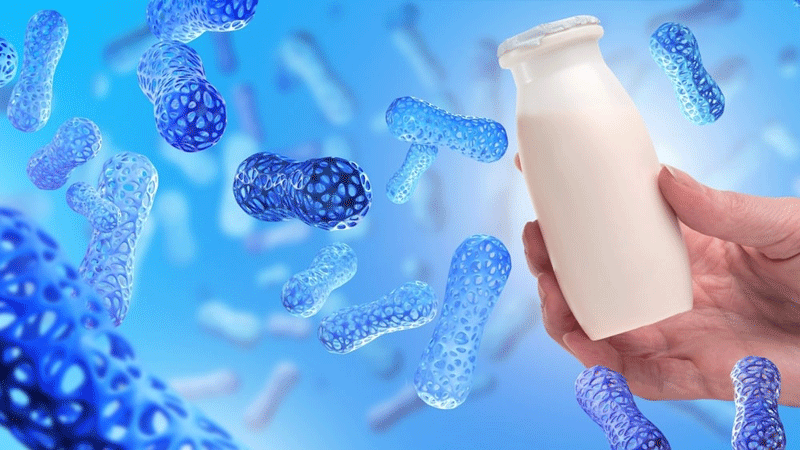
Imagine this scenario: you wake up in the morning feeling slightly off; perhaps your stomach is upset, or you’re experiencing digestive discomfort. You ask yourself, “What can I do to alleviate these symptoms?” One potential solution lies within probiotics and their impact on digestion. Probiotics, in simplest terms, are live bacteria or yeasts that, when consumed in adequate amounts, can confer health benefits onto the host. These beneficial microorganisms mainly reside in our gut, forming what is commonly referred to as the gut microbiome. A healthy gut flora balance is crucial for proper digestion and overall well-being.
The Role of the Digestive System
The human digestive system is an intricate network of organs responsible for breaking down food into absorbable nutrients, eliminating waste, and maintaining optimal functioning. It relies on a delicate balance of beneficial bacteria to carry out these functions efficiently.
Probiotics and Fiber Digestion
For instance, let’s say you consume a meal rich in fiber. Without getting too technical, probiotics break down complex carbohydrates and fibers that can be challenging for the body to digest alone. They produce enzymes that assist in this breakdown process and aid nutrient absorption.
Protective Features of Probiotics
Moreover, probiotics stimulate mucus production in the intestines, acting as a protective barrier against harmful pathogens and reducing inflammation. This enhanced barrier function helps prevent leaky gut syndrome and improves digestive health.
Additional Benefits and Importance
In addition to supporting digestion, researchers have discovered several other potential benefits of probiotics, such as strengthening the immune system, improving mental health, and reducing the risk of certain chronic diseases. The importance of maintaining a healthy gut microbiome cannot be overstated.
Learn More about How Long Does It Take for Probiotics to Work? Unraveling the Science
Do Probiotics Make You Poop?
Probiotics are live beneficial bacteria often taken as supplements to balance the gut microbiota. They can influence digestive health in several ways, potentially aiding bowel regularity. Probiotics can help alleviate constipation by enhancing the gut’s movement and promoting more frequent bowel movements for some individuals. However, it’s worth noting that reactions can vary based on the individual and the strain of probiotics. While some people experience improved bowel regularity, others might not notice any change or could even experience temporary digestive upset. Always consult with a healthcare professional before starting any new supplement.
Probiotics: Not Just for Gut Health
When you think of probiotics, the first thing that may come to mind is their association with gut health. However, their impact extends far beyond the digestive system. Probiotics have been found to influence various aspects of our well-being, both physically and mentally.
The Immune System Connection

For starters, a healthy gut microbiome helps regulate the immune system. By modulating the immune response, probiotics can reduce the risk of allergies, autoimmune diseases, and certain cancers. They are like little soldiers in your gut, fighting off harmful invaders and maintaining balance within your body.
The Gut-Brain Axis and Mental Health
Furthermore, emerging research suggests a strong connection between gut health and mental health. The gut-brain axis is a bidirectional communication pathway that allows the gut and brain to interact constantly. Probiotics have shown promise in improving symptoms of anxiety, depression, stress, and even cognitive function.
Debating the Efficacy
Some skeptics argue that the evidence supporting these claims is still limited, and more research is needed to understand the mechanisms at play fully. While it’s true that we are still uncovering the complexities of how probiotics interact with our bodies, numerous studies have already demonstrated their potential benefits.
Probiotics in Managing IBS
Take irritable bowel syndrome (IBS) as an example. Patients with IBS often experience symptoms such as abdominal pain, bloating, and altered bowel movements. Clinical trials have shown that specific strains of probiotics can significantly reduce these symptoms and improve the overall quality of life for those suffering from this condition.
Choosing the Right Probiotic
It’s important to note that not all probiotic supplements are created equal. The effectiveness of a probiotic depends on factors such as strain specificity, dosage, and individual genetic makeup. It’s best to consult with a healthcare professional or nutritionist who can guide you toward the most suitable option based on your specific needs.
With growing evidence highlighting the diverse benefits of probiotics, it’s clear that they are not just limited to gut health. So, whether you’re looking to support your digestive system or enhance your overall well-being, incorporating probiotics into your routine may be a step in the right direction.
Read More: Probiotics for Women: How Much Should You Take Daily?
Exploring the Gut Microbiome
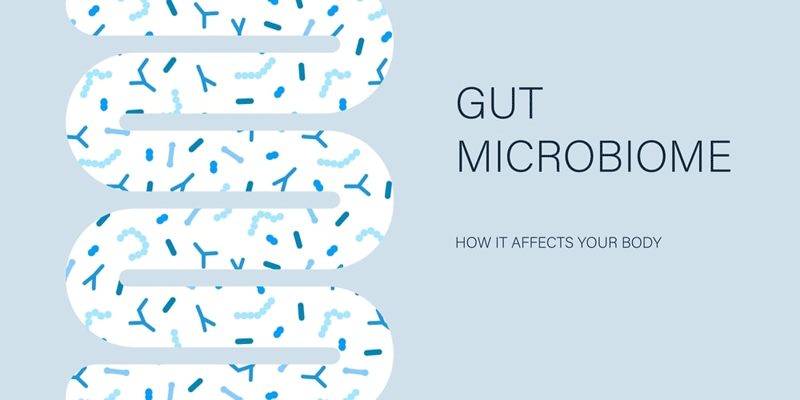
The gut microbiome is a fascinating and complex ecosystem of microorganisms in our digestive system. This intricate community comprises trillions of bacteria, fungi, viruses, and other microbes. These microbiota play a critical role in digestion and overall health and well-being.
Roles of the Gut Microbiome
The gut microbiome is involved in various essential functions, such as breaking down certain indigestible fibers, producing vitamins (like vitamin K and B vitamins), supporting immune function, protecting against harmful pathogens, and regulating inflammation. It also influences the brain-gut axis, affecting our mood, cognition, and emotional well-being.
Visualizing the Gut Ecosystem
Imagine your gut as a bustling city teeming with diverse inhabitants to visualize this intricate relationship. Each microbe has its role; some are like friendly neighbors who help with daily functioning, while others act as gatekeepers protecting you from potential threats. It’s all about maintaining balance and harmony within this microbial community.
Now that we have explored the importance of the gut microbiome, let’s delve into the topic at hand – probiotics and their impact on bowel movements.
Probiotics: Do They Stimulate Bowel Movements?
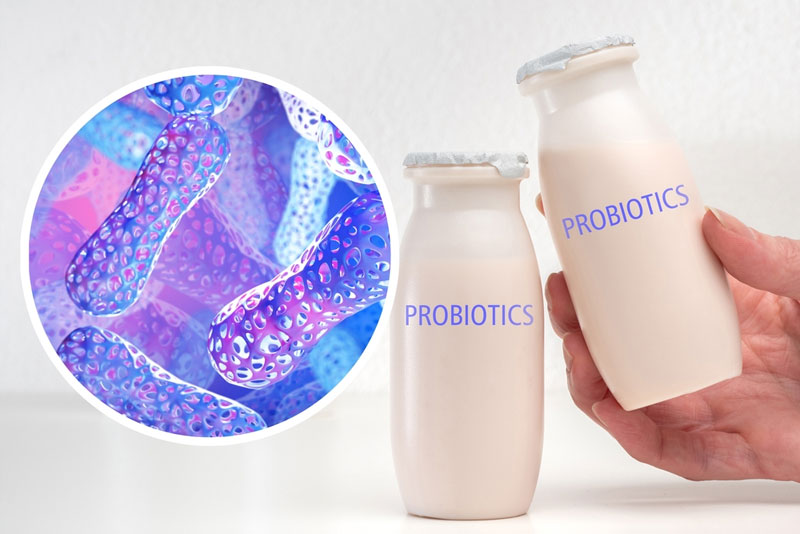
Probiotics are living microorganisms, usually bacteria or yeasts, that provide health benefits when consumed adequately. They can be found naturally in certain foods like yogurt or taken as supplements. Many wonder if probiotics can stimulate bowel movements and improve digestive health.
Influencing Bowel Movements
Probiotics have been shown to significantly regulate bowel movements by influencing the balance of gut bacteria. For individuals struggling with functional constipation (FC) or functional diarrhea (FDr), which are common functional bowel disorders characterized by chronic symptoms of bloating, abdominal pain, constipation, or diarrhea, probiotic supplementation has been found to improve gastrointestinal health.
The mechanism behind probiotics’ impact on bowel movements lies in their ability to restore gut microbiota balance and promote the production of major short-chain fatty acids, which regulate intestinal motility.
Potential Side Effects of Probiotics on Digestion
While probiotics offer numerous health benefits, it’s important to consider potential side effects on digestion. Introducing new bacteria into your gut may initially cause temporary digestive issues such as gas and bloating. This is often a result of the adjustment period as your gut microbiome adapts to the presence of these new microorganisms. These symptoms often subside after a few days or weeks as your body acclimates to the changes.
It’s normal to experience mild discomfort during this transition as your body adjusts to the new gut flora. Remember, it’s a sign that the probiotics are actively working in your system.
User Experiences
For instance, Sarah, a 35-year-old woman with occasional digestive issues, incorporated probiotics into her daily routine. At first, she experienced slight bloating and increased gas but noticed improvements in her bowel movements within two weeks. Her body eventually adjusted, improving regularity and reducing discomfort over time.
Addressing Concerns
Apart from temporary digestive issues, some individuals may also experience headaches from strains of bacteria in certain probiotic supplements. This is more common in people sensitive or allergic to specific strains. If you notice persistent headaches or other adverse symptoms after taking probiotics, it’s advisable to stop using the supplement and consult with a healthcare professional.
Safety Considerations
While there are potential side effects, it’s important to note that probiotics are generally safe for most individuals. However, as with any supplement or dietary change, individual reactions may vary. Suppose you have any underlying health conditions or concerns about adding probiotics to your routine. In that case, seeking guidance from a qualified healthcare professional who can evaluate your needs and provide personalized advice is always recommended.
Now that we have discussed the potential side effects of probiotics on digestion let’s explore one specific aspect: analyzing the diarrhea risk associated with using probiotics.
Analyzing Diarrhea Risk
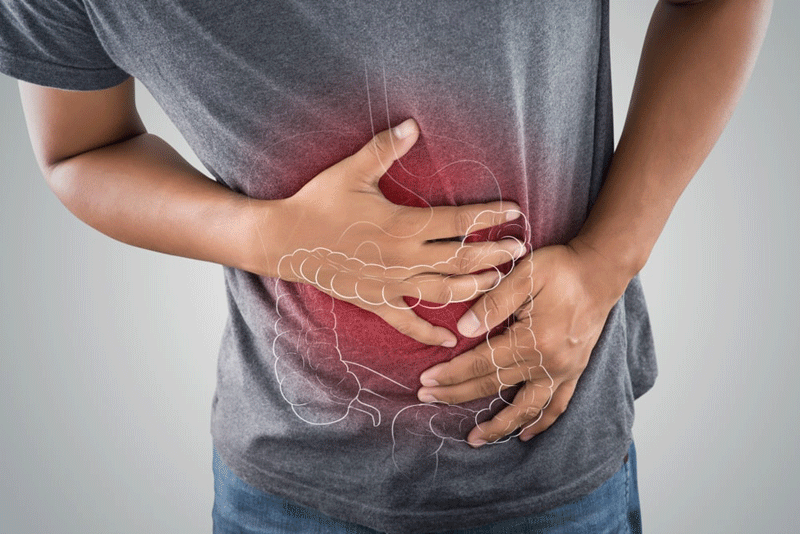
Diarrhea is a common digestive concern, and it’s natural to wonder if probiotic supplementation can worsen or alleviate this issue. While research indicates that probiotics can be beneficial in managing certain types of diarrhea, assessing the risk factors is important before determining the appropriateness of probiotic use.
Case Study Approach
Consider Jane, a 45-year-old woman who frequently experiences digestive discomfort and occasional episodes of diarrhea. She consulted her doctor and discovered that she has lactose intolerance. Her doctor recommended a specific strain of probiotic that aids in lactose digestion. After incorporating it into her routine, Jane noticed a significant improvement in her symptoms, including a reduction in the frequency and severity of diarrhea.
Effectiveness in Different Scenarios
Probiotics are particularly effective in cases where diarrhea is caused by antibiotic use, infection, or other gastrointestinal issues. The live bacteria present in probiotics can help restore balance to the gut microbiome and improve overall digestive health.
Choosing the Right Strain
However, it’s worth noting that not all strains and types of probiotics are equal when addressing diarrhea. Different strains have varying effects on gastrointestinal function, so it’s essential to choose the right probiotic supplement or fermented food based on your specific needs and health condition.
Now that we understand the potential benefits of probiotics for managing certain types of diarrhea, let’s shift our focus toward making wise choices when selecting the right probiotic supplement.
Making Wise Choices: Selecting the Right Probiotic Supplement
With the vast array of probiotic supplements available, selecting the right one that suits your unique needs can be challenging. However, making a wise choice requires understanding and considering several key factors. Here, we’ll explore some essential considerations for selecting the most suitable probiotic supplement for your digestive health.
Identifying Health Goals
Firstly, it’s crucial to identify your specific health goals or concerns. Are you seeking relief from digestive issues such as bloating or diarrhea? Or do you aim to support your immune system or improve gut health? Different probiotics may address various concerns, so having a clear idea of what you hope to achieve can guide your selection process.
Tailoring to Specific Needs
For instance, if you’re experiencing frequent digestive discomfort, a probiotic that contains Lactobacillus acidophilus and Bifidobacterium lactis strains is beneficial for improving symptoms of bloating and gas. On the other hand, if you’re looking to support vaginal health, a specialized women’s probiotic with Lactobacillus rhamnosus and Lactobacillus reuteri strains may be more suitable.
Evaluating Strain Composition
Another crucial aspect of selecting a probiotic supplement is examining its strain composition and quantity of bacteria. Different strains have varying benefits, so choosing one that aligns with your desired outcomes is important.
Diversity & Quantity of Strains
Look for a supplement that provides information on the specific strains of bacteria it contains. The quality and diversity of strains are vital as they can determine how well the probiotics will thrive in your gut environment and interact with your body. A broader range of strains may offer more comprehensive benefits for gut health.
Understanding CFUs
It’s also important to consider the number of bacteria colony-forming units (CFUs) in each supplement dose. Higher CFU counts are not always better, as research suggests that different health conditions may require varying amounts. A probiotic with around 1-10 billion CFUs may be sufficient for general digestive health maintenance. However, higher doses benefit certain conditions, such as 25-50 billion CFUs for managing antibiotic-associated diarrhea.
Considering Gastrointestinal Issues
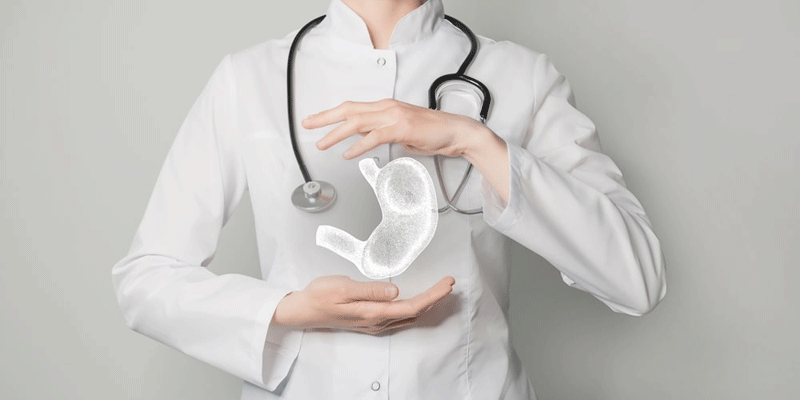
Let’s say you’re considering a probiotic supplement that contains a blend of Lactobacillus and Bifidobacterium strains in the range of 20-30 billion CFUs. This balance of strains and quantity could be particularly beneficial if you’re struggling with gastrointestinal issues like irritable bowel syndrome (IBS) or inflammatory bowel disease (IBD).
The Role of Prebiotics & Postbiotics
Additionally, consider whether the probiotic supplement includes prebiotics or postbiotics. Prebiotics are types of fiber that serve as food for the beneficial bacteria in your gut, helping them thrive. Postbiotics are the byproducts produced by these bacteria during fermentation and can have their health benefits.
Choosing Comprehensive Probiotics
Including prebiotics in your probiotic supplement can enhance the effectiveness of the beneficial bacteria by providing them with nourishment. Look for ingredients like inulin or fructooligosaccharides (FOS) on the label, indicating prebiotics.
Similarly, postbiotics can have positive effects on gut health and overall well-being. These byproducts may include short-chain fatty acids, vitamins, enzymes, or other bioactive compounds. While not all probiotics contain postbiotics explicitly mentioned on the label, some supplements may contain additional information about any present postbiotics.
Suppose you’re interested in reaping the benefits of both prebiotics and postbiotics. In that case, Ritual Synbiotic+ is an example of a comprehensive probiotic supplement that contains prebiotic fibers to support bacterial growth and postbiotic metabolites that offer additional health benefits for your gut.
Allergens & Dietary Restrictions
Finally, be mindful of any potential allergens or dietary restrictions you may have. Ensure the probiotic supplement is free from ingredients you might be sensitive to, such as gluten, dairy, soy, or other major allergens.
Tailoring to Lifestyle Choices
It’s worth exploring probiotics labeled vegan or vegetarian-friendly for individuals with specific dietary requirements. These options are formulated without animal-derived ingredients and can provide suitable alternatives without compromising your lifestyle.
Shelf-Stable vs. Refrigerated Probiotics
Some individuals may also debate whether a shelf-stable or refrigerated probiotic is better. While refrigerated probiotics may contain live bacterial strains that require cooler temperatures for preservation, shelf-stable probiotics can still offer effective results. The stability and viability of the strains are more important factors to consider than the storage conditions alone. It’s crucial to follow the manufacturer’s guidelines regarding storage for optimal efficacy.
Conclusion
Making wise choices when selecting a probiotic supplement involves considering various factors, such as your specific health goals, strain composition, quantity of bacteria (CFUs), inclusion of prebiotics or postbiotics, allergen-free options, and storage considerations. By carefully evaluating these aspects and tailoring your selection to align with your needs, you can choose a probiotic supplement that best supports your digestive health journey.
How do probiotics affect the digestive system?
Probiotics can positively impact the digestive system by promoting healthy gut bacteria, improving digestion, and reducing certain digestive issues. These live microorganisms help maintain a balanced gut microbiome, enhancing nutrient absorption and aiding in the breakdown of complex foods.
Can probiotics cause constipation instead of diarrhea?
Yes, in some cases, probiotics can cause constipation instead of diarrhea. Although probiotics generally improve digestion and relieve constipation, certain strains have been linked to constipation effects.
Are there any potential risks or side effects associated with taking probiotics?
While probiotics are generally safe for most individuals, there are potential risks and side effects associated with their use. These can include gastrointestinal symptoms like bloating, gas, and diarrhea, especially when using high doses or certain strains of probiotics.
